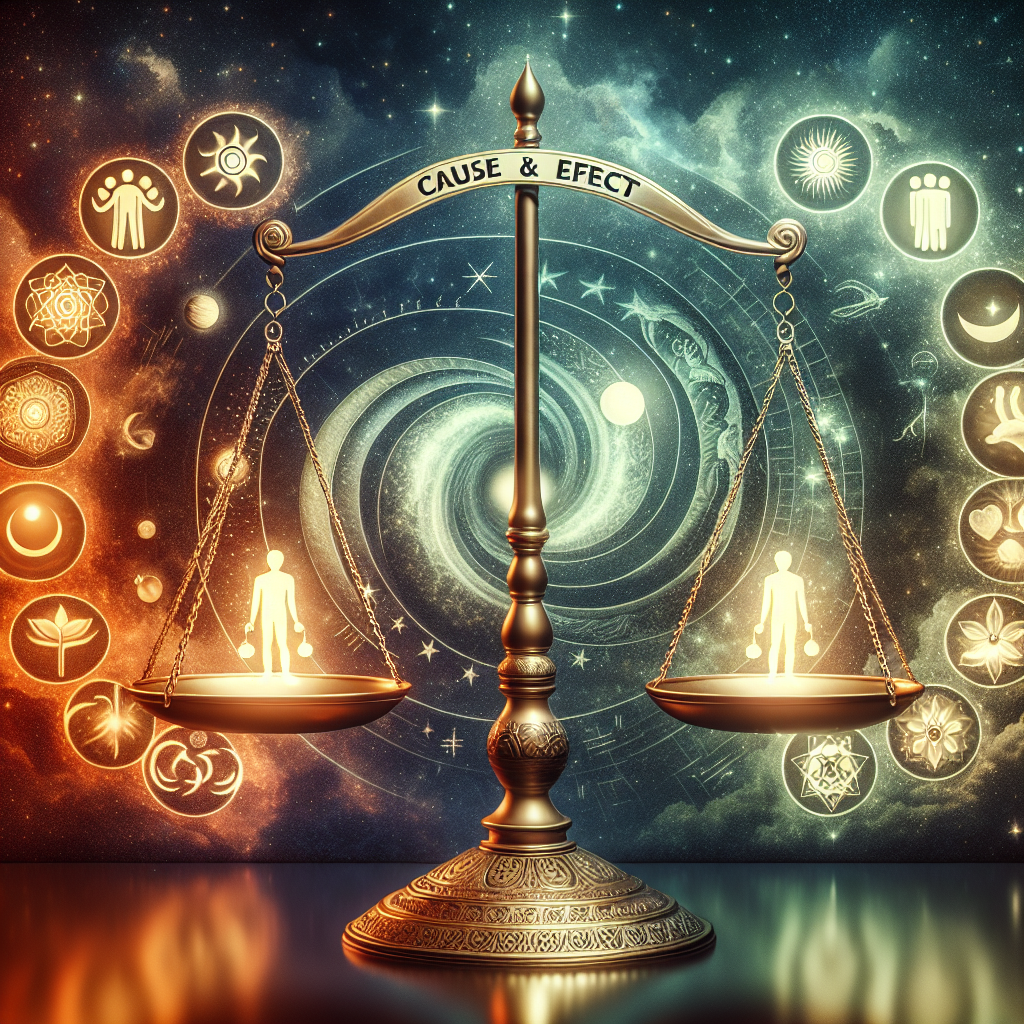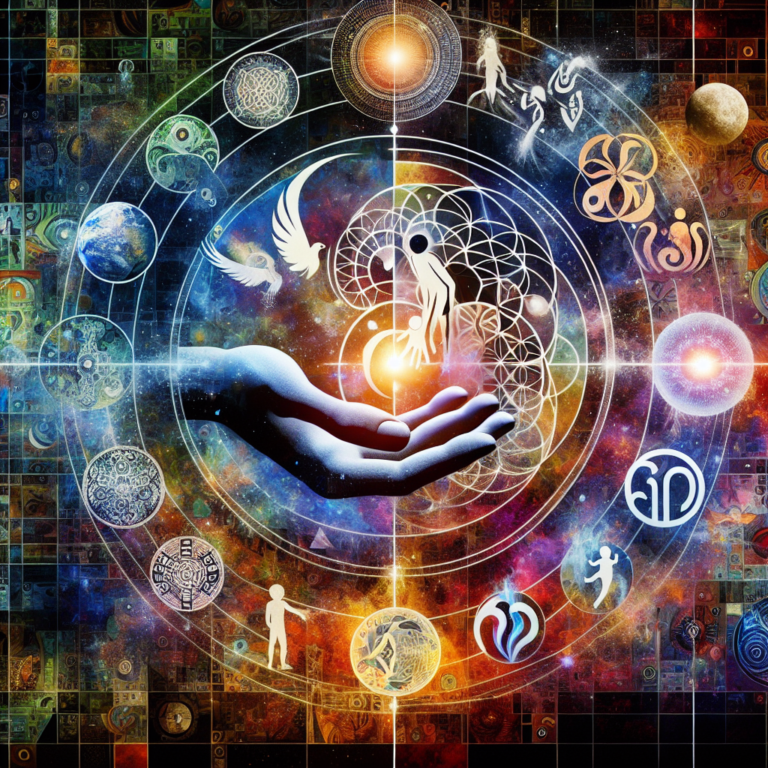Karma is often seen as a mystical force that governs the cosmos, but at its core, karma represents a fundamental principle deeply rooted in the understanding of cause and effect. The term originates from ancient Indian spiritual traditions, and while it is widely recognized in various forms across different cultures and religions, its essence remains the same. This article delves into the concept of karma, exploring its implications on our lives, relationships, and the universe at large. Whether you’re new to karma or seeking deeper insight, this comprehensive overview will guide you through its fundamental aspects.
Understanding Karma
The word ‘karma’ comes from the Sanskrit word ‘karman,’ which means “action” or “deed.” At its most basic level, karma can be understood as the law of cause and effect that governs our actions and their consequences. It asserts that every action we take—whether good, bad, or neutral—will have corresponding results, impacting not only our lives but the lives of those around us.
Karma operates on the principle that positive actions generate positive returns, while negative actions lead to negative outcomes. This can manifest in many ways: through personal experiences, relationships, and even in the larger sphere of the community and the universe. Understanding this law is essential for fostering positive relationships and creating a fulfilling life.
The Historical Context of Karma
Karma’s roots are deeply embedded in Hinduism, Buddhism, and Jainism. Each of these traditions offers a unique perspective on karma, albeit with several overlapping themes:
- Hinduism: In Hindu philosophy, karma is closely tied to the concepts of dharma (righteous duty) and samsara (the cycle of birth, life, death, and rebirth). Hindus believe that karma determines the nature of one’s reincarnation, influencing the quality of one’s next life based on one’s actions in previous ones.
- Buddhism: Buddhists interpret karma as a natural law that relates to intention. They believe that unwholesome intentions lead to suffering, while wholesome intentions lead to happiness. The concept of karma is not just limited to physical actions but extends to thoughts and intentions.
- Jainism: In Jainism, karma is viewed as a form of matter that weighs down the soul. By performing good deeds and purifying the soul from bad karma, one can ultimately achieve liberation (moksha).
These traditions help illustrate karma as more than mere fate; it is a dynamic system of moral causation, influencing spiritual growth and ethical living.
Types of Karma
Karma can be categorized into different types, each reflecting the nuances of our actions:
- Sanchita Karma: This refers to the accumulated karma from all past lives. It represents the totality of actions that have not yet manifested in our current life. Sanchita karma is often considered a sort of ‘bank’ of potential actions and effects.
- Prarabdha Karma: This is the portion of sanchita karma that is currently being experienced in the present life. It is the karma that has ripened and is responsible for the current life circumstances.
- Kriyamana Karma: Also known as ‘current karma,’ this type represents the new actions that are being created in the present moment. It’s the ongoing cycle of cause and effect that shapes our future experiences.
- Aagami Karma: This refers to karma that is yet to be experienced as a result of actions taken in the present moment. This type of karma connects our present actions to our future experiences.
The Law of Cause and Effect
The law of cause and effect is the foundational principle of karma. Every action—physical, verbal, or mental—creates a reaction. This relationship is often illustrated using simple examples:
- Positive Actions: A person who engages in acts of kindness, such as volunteering or helping others, is likely to experience positive feelings, gratitude, and a sense of fulfillment. Their goodwill can also lead to supportive relationships and community connections.
- Negative Actions: On the other hand, a person who spreads negativity through gossip, deceit, or harm may find themselves isolated or facing conflicts. The negative energy they emit is often mirrored back to them, creating a cycle of adverse outcomes.
This cycle of action and reaction creates a web of interdependence, where each person’s actions contribute to the collective experience of society. Understanding this principle encourages individuals to engage in mindful actions that uplift rather than diminish themselves and others.
The Role of Intention
While all actions have consequences, the intention behind those actions plays a crucial role in determining the nature of karmic outcomes. In Buddhism, for instance, intention is regarded as a vital factor that influences the ethical quality of an action.
If an action is performed with genuine goodwill and compassion, its karmic results are likely to be positive. Conversely, if an action arises from selfishness, anger, or malice, the results will reflect that negativity. Thus, the motivation behind our actions can elevate or diminish their karmic value.
Karma in Daily Life
Incorporating the wisdom of karma into our daily lives is essential for personal growth and fulfilling relationships. Here are several practical approaches:
- Mindfulness: Being aware of your thoughts, words, and actions allows you to make conscious choices that align with your values. Mindfulness helps create space between impulse and action, enabling you to consider the potential consequences.
- Compassion: Cultivating compassion for others fosters positive karma. By extending kindness, understanding, and support to those around you, you contribute to a more benevolent environment.
- Reflection: Regularly reflecting on past actions can provide valuable insights into patterns that lead to negative outcomes. It allows you to learn from experience and adjust future behavior.
- Accountability: Take responsibility for your actions. Accepting responsibility creates an opportunity for growth and transformation, breaking the cycle of negative karma.
The Interconnectedness of All Beings
Karma also speaks to the interconnectedness of all beings. Every action not only impacts the individual but resonates through the fabric of the community. A positive action can uplift an individual, who then may serve to uplift others, creating a ripple effect that benefits the collective.
This understanding of interdependence fosters a sense of responsibility towards one another and the environment. When we recognize that our actions can influence the broader community, we become motivated to act with greater care and consideration.
Transforming Negative Karma
While negative karma can feel burdensome, it is essential to remember that it can be transformed. Here are strategies for transforming negative karma into positive outcomes:
- Awareness and Acknowledgment: Recognizing and accepting the negative actions that created unfavorable karma is the first step towards change. Self-awareness is crucial in understanding the root of negative patterns.
- Seeking Forgiveness: Asking for forgiveness from those you’ve harmed can release the weight of negative karma. It also allows for healing and reconciliation.
- Making Amends: Taking action to repair the damage caused by previous actions, whether through restitution, service, or other means, helps transform negative energy into positive action.
- Engaging in Positive Deeds: By intentionally engaging in kind and compassionate actions, you can begin to generate positive karma that counterbalances previous negative actions.
Karma and Spiritual Growth
Karma serves not only to regulate morality but also to facilitate spiritual growth. It encourages individuals to learn from their actions, promote mindfulness, and cultivate virtues such as compassion and kindness.
Through understanding and applying the principles of karma, individuals have the opportunity to transform their lives, develop greater awareness, and engage in the continual journey of self-improvement.
Conclusion
Karma is far more than a simple concept; it is a profound law governing our behavior and interactions. By recognizing the interconnectedness of all beings and understanding that our actions have meaningful consequences, we unlock the ability to create positive change in our own lives and the lives of others.
In a world that often seems chaotic and unpredictable, karma offers a guiding framework for ethical living, personal accountability, and spiritual growth. When we engage thoughtfully with our own karma, we pave the way for a more compassionate, harmonious existence—one action at a time.
FAQs
What is karma?
Karma is the principle of moral causation, where every action has a corresponding effect. It emphasizes that our deeds—mental, verbal, and physical—create positive or negative outcomes in our lives and the lives of others.
Can karma be changed?
Yes, karma can be transformed. By engaging in positive actions, acknowledging negative behaviors, and seeking forgiveness, individuals can alter their karmic trajectory.
Is karma the same as fate?
No, karma is not the same as fate. While karma relates to the consequences of one’s actions, fate suggests a predetermined existence. Karma is about free will and the impact of our choices.
How does karma affect relationships?
Karma affects relationships by influencing the quality and nature of interactions. Positive karma fosters healthy and supportive relationships, while negative karma can lead to conflict and misunderstandings.
What role does intention play in karma?
Intention is central to karma, as it determines the ethical quality of an action. Positive intentions lead to positive karmic outcomes, while negative intentions can generate negative consequences.
, It seems that you entered “Prompt” without additional context. How can I assist you today? If you have a specific topic, question, or creative task in mind, feel free to share!, #Fundamentals #Karma #Unlocking #Law #Effect, #Fundamentals #Karma #Unlocking #Law #Effect, 1734057420, the-fundamentals-of-karma-unlocking-the-law-of-cause-and-effect





